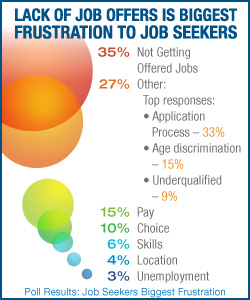 Whether you’re considering expanding your education for the first time or wanting to learn a new trade, your local career technology school could be just what you’re looking for. A career technology education often provides quality training for less time and money than more formal university programs. And, with Harvard University’s 2011 “Pathways to Prosperity” report showing that more than 25% of those holding post-secondary licenses or certificates from a career technology education earn more than the average bachelor’s degree recipient, getting a career technology education is a great way to further your career and increase your earning potential.
Whether you’re considering expanding your education for the first time or wanting to learn a new trade, your local career technology school could be just what you’re looking for. A career technology education often provides quality training for less time and money than more formal university programs. And, with Harvard University’s 2011 “Pathways to Prosperity” report showing that more than 25% of those holding post-secondary licenses or certificates from a career technology education earn more than the average bachelor’s degree recipient, getting a career technology education is a great way to further your career and increase your earning potential.
If you do decide to attend a career technology education, you still need to do a little research to make sure you’re choosing the best one for your needs. Here are four things to keep at the top of your checklist as you make your decision.
The Program You Want
Not all career technology education’s offer the same programs and certifications, so start out by finding the ones that offer what you’re looking for. If you aren’t quite sure what type of career you’re interested in, career technology schools are also great places to try different fields of work until you find one that fits. According to the New York Times, the U.S. Bureau of Labor Statistics reported that “of the 30 jobs projected to grow at the fastest rate over the next decade in the United States, only seven typically require a bachelor’s degree.” So you might take job security, projected growth, and earning potential into consideration as you decide on a program.
A Price You Can Afford
One of the best aspects of a career technology education is its affordability. “Because trade and technical schools are often directly tied into the employment needs of their region or state, prospective students can find low cost or free programs,” Mary Docken, director of market development at Hobsons, an education solutions firm, told Fox Business News. It is important to compare all the career technology schools within driving distance to see if one is cheaper than the others or if one has better scholarships or financial aid options.
Quality Teachers
Once you decide on your area of study, take a look at the various career technology teachers. What type of training do they have? Have they worked in the real world? What’s their reputation among their students? Often times, the instructors are more down to earth and approachable than university professors. “Instructors are usually well seasoned professionals with direct experience in the field, which is often not the case in the traditional college setting,” Erin Davis, director at McGraw-Hill Higher Education, said in a Fox Business News article.
A Good Reputation
Attending a career technology school that has a good reputation with local professionals and employers is critical if you want to maximize your chances of quickly landing a job after completing your training. So try to talk with some potential employers and find out what schools and programs they prefer to hire from. When a career technology school has a good enough reputation, some employers will even hire students before they graduate.
Just because career technology schools don’t receive all the hype that universities often do doesn’t mean they aren’t a great, viable option for you. Many of the jobs you can receive training for from a career technology school will provide stable, well-paying careers. And, even if you were already proficient in your field of work, sometimes getting that formal certification is what it takes to make you stand out from other job seekers.
Did you attend a career technology school and now have a great job? Do you think career technology schools can prepare you for a career just as well as universities? Let us know in the comments sections below.






